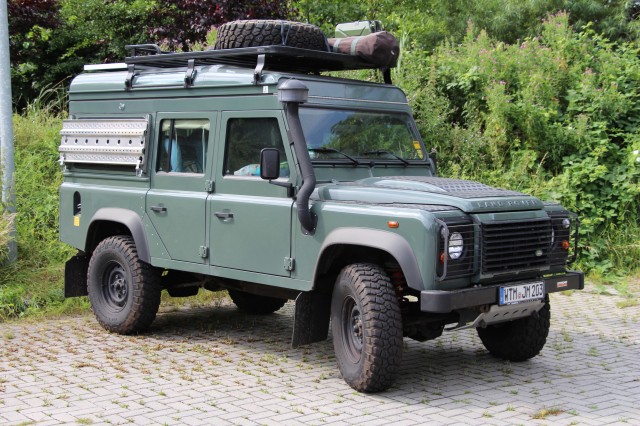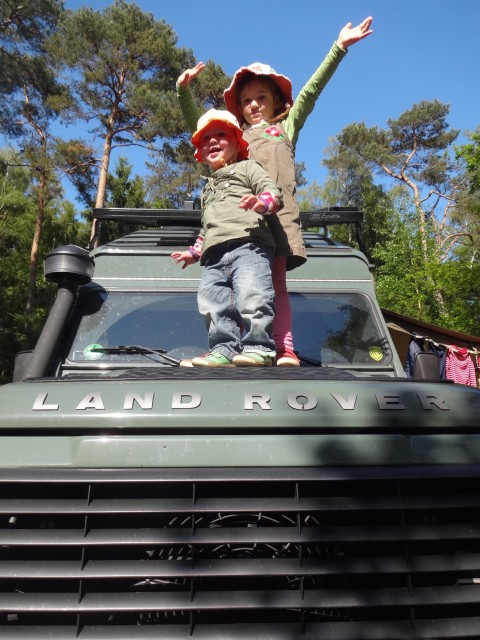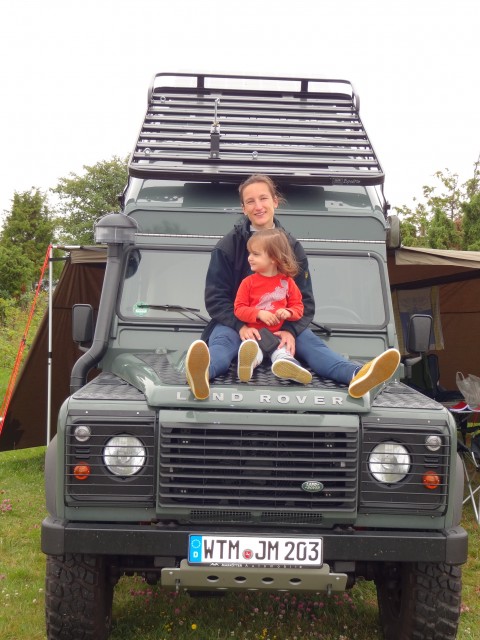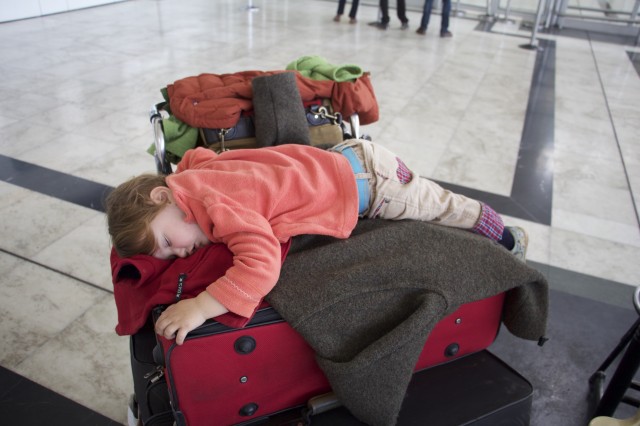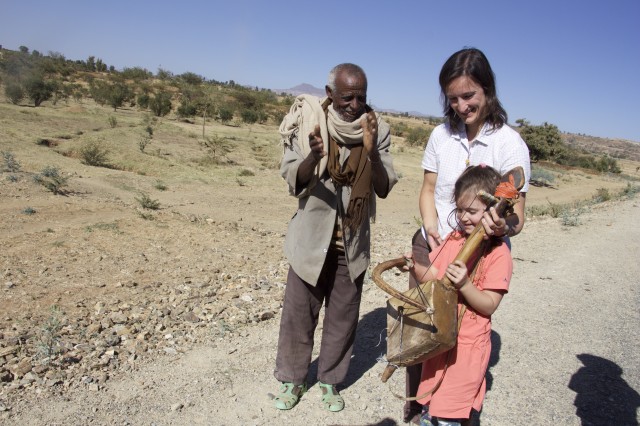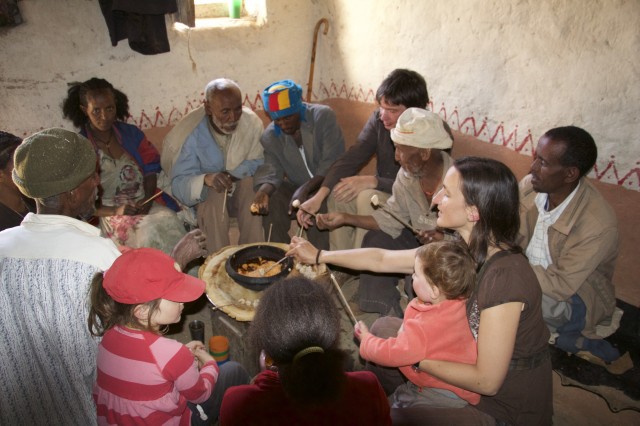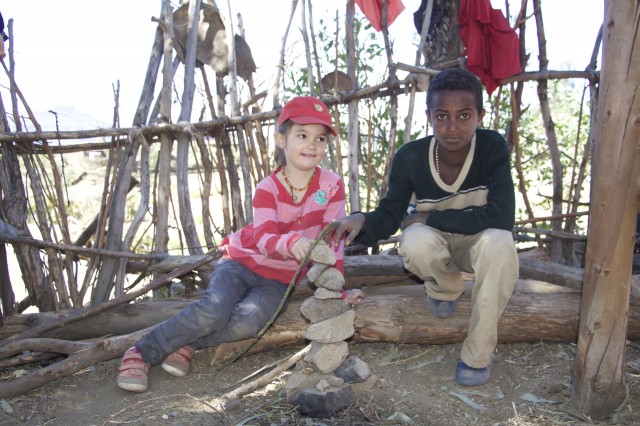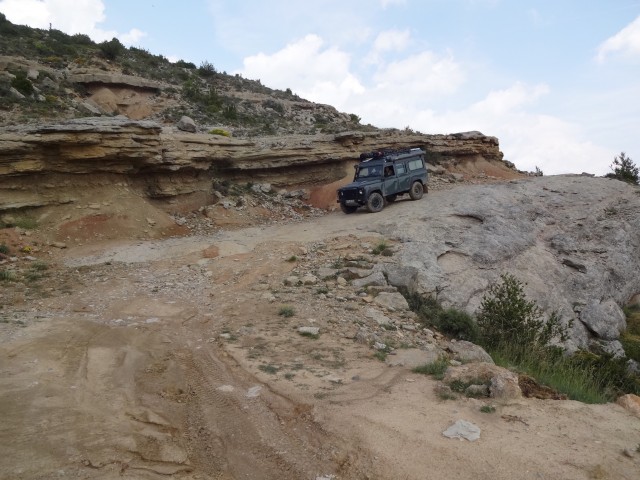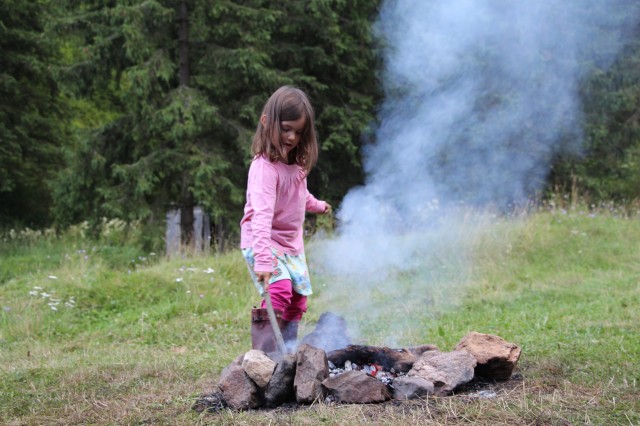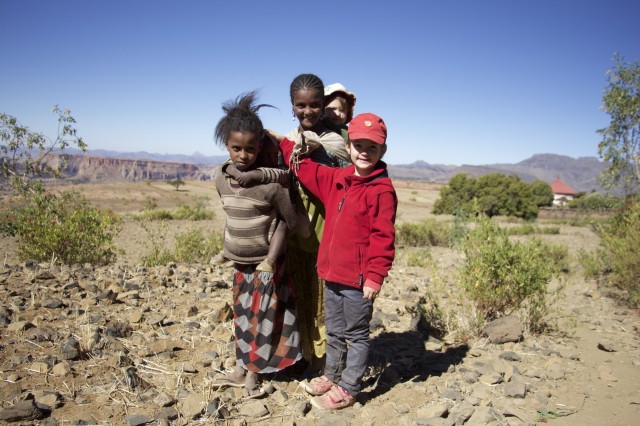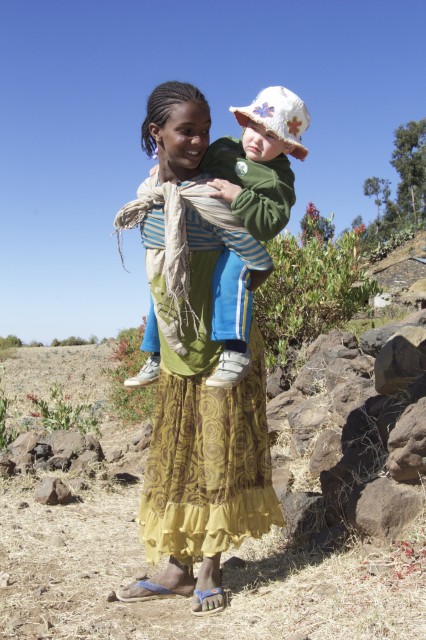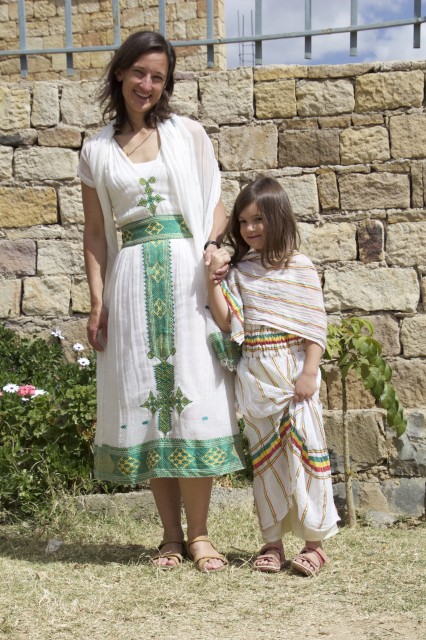Kids, like ships, are outward bound and ready to leave safe harbor to explore the globe. Why not board the ship, or in our case the Land Rover, and set sail into adventure. Instead of wasting time sitting in a classroom, kids might as well make the whole world a classroom. Where else could a family experience all that can be had by living on the road? Not only the will the children grow through travelling, the nomadic lifestyle will make the parents grow as well, and the family will create an unbreakable bond in the process.
Although traveling with small children sounds harmless, the reactions you will get as parents of young children when you tell friends, colleagues and family about your overland plans are quite often highly critical. This is made more so if you want to go to the “danger zones” of Africa, South and Central America and Asia. Reactions range from “Oh, how interesting,” to a direct, “This is irresponsible.” Certainly after one has crossed the Rubicon and has decided on this radical change in lifestyle, one will automatically be confronted with critical comments. Instead of leaving the wonderful idea of long overland travel with kids, this made us focus on clearer goals and led to a more constructive thinking concerning our “travel school”. The more we thought about it, the more convinced we were that overland travel is extremely important for children’s personal development and might provide an answer to many educational issues.
Are overland parents egoistical?
Think about it…a lot of parents with young children simply want to relax on their holidays. In our “normal” routines, the children have to simply be functioning and adapt to the adult’s working life. On holiday, in the hotel or club, the parents make use of holiday reps while they do sports, go on a bus trip to the next volcano or go out for dinner. Parents of overland children invest time in their young ones and in the family as a whole. Traveling together gives an immense amount of time – especially evenings around the campfire and even the long hours when driving can be used to talk and interact with each other. You would be impressed what children notice of their surroundings and what questions they ask.
Will my children miss subject matter in kindergarten, preschool and school?
Worldwide, educational scientists, parents and even some politicians criticize schools arguing that teaching methods are far too theoretical, out of context, not lively, far too less playful and timetables do not follow the children’s biorhythms. Schools in general rarely are child-oriented and more like mass processing institutions instead of being individually supportive, as there simply is no time for individual character shaping, developing soft skills or fostering a sense of responsibility. Overland-parents who are aware of what their children’s intellectual needs are can provide a wonderful solution to all these criticisms There is a vast amount of time that can be used for educational purposes while overlanding. Overlanding provides a great chance to use an immense wealth of every day situations schools can never provide: shopping in a foreign currency (mathematics), communication between people sharing no common mother tongue (intrinsically motivating to learn a second language), route-planning includes reading (language) and navigating on maps (mathematics, geography), travel documentation includes photography (arts), writing (language), painting (arts) and using modern media (media literacy) and so forth. We could go on endlessly here, but needless to say the educational opportunities are many. All this knowledge is interdisciplinary and cross-linked with real-word application. Apart from “traditional” school subjects, the daily life on the road provides more down to earth situations children can immensely profit from. During our long dreamed-of overland journey through parts of Asia and East Africa, our daughter Anouk, for example will be responsible for checking the Landy every morning. This leads me to the point of developing the responsibilty that is so important to child development. In our culture(s), adults pass on responsibility to their children only at a very late age and then they do it immediately, actually without any real training. While overlanding, children will through daily activities take more responsibility for certain things which are important to the whole family’s success.
In many situations the parents will have a large amount of knowledge they can teach their children and so the kids learn from people who are their natural role models anyway. But, for us one of the most important aspects is that there are many situations when the normal “top to bottom” teaching situation is broken up and children and parents alike learn together. So, travel becomes continual education, all day long.
Traveling becomes a secret curriculum that without any notice of children and parents just happens. Overland kids have a rare chance to learn that nature is to be respected, to become more open minded, and self-confident. They learn not to be critical of other cultures and people and to be more accepting of global differences. Traveling can also reduce egoism and western-centric world views. All their experiences will subconsciously influence their further development. The older they are the more impact traveling will have consciously as well.
Won’t my kids be bored?
Going on an adventure together with the parents reduces boredom to almost zero. Only long periods of driving, which are also reduced to a great extent if you slow travel, might be little tiresome, but can be made entertaining. We listen to music, but don’t allow earplugs and listen to everything together. Every once in a while we discuss who can choose the program for the next few hours. Just think about how many hours daily your children spend in front of television, internet, playstation, iPods, iPads, or using the telephone. Traveling children have little time for these distractions and the time without these devices can be used for learning and family time.
But everything we need as a family won’t fit into that small Land Rover, right?
Yes, it will, don’t worry. In our modern world with more than one children’s room, TV etc, it is indeed possible to reduce material things. Herman Zapp told the story of the people living on floating islands on lake Titikaka, who can only take a few things otherwise their island would simply sink. Our kids get one box each which they can fill with whatever toys they think they need on the trip. The whole world is full of toys. I constantly have to empty the Landy of all the stones, sticks and plant seeds Anouk collects. In addition to that, we have pens and pencils, paper, cameras, computers, which all can be used for an interesting life. Clothes can be reduced as well. Everything else which is important fits into our small Land Rover, believe it or not, and what we can’t fit we live without.
Will my children become social loners? Will they become alienated from their friends or family members? Will they lose their roots or sense of home?
From our point of view, home is not a place, but intensively dependent on people. Home is where the heart is, s the saying goes. Traveling children will meet hundreds of people on the road and learn how to approach people from other cultures. They are never alone, have their parents around them constantly and just think how rare that is in our modern age. As for roots, they’ll soon become citizens of the world, something they will cherish when they have grown up.
Will our relationships stand the test?
It’s not uncommon for such closeness during a long trip to strain relationships. Living together so close certainly is and always will be a challenge. Going through difficulties only consolidates personality, partnership, family bonds and incidentally strengthens the ability to argue smartly in conflict situations and establish self-confidence. As Juliane and myself met while sailing on traditional tall ships in close-knit community we had the chance to learn how to best get along.
What about danger, crime and illnesses?
During our travels so far we have observed that we often get preferential treatment and that people want to help our young family. The value of family is really treasured in most parts of the world in a way unexpected by westerners. In addition to that, traveling families will most certainly get respect from the people they meet just because everybody knows that traveling with young children is sometimes really challenging.
Still, one cannot easily dismiss all the potential dangers. Sometimes one has to opt against traveling to certain places due to the security situation. But sometimes the locals will be a great help in that, especially if you travel as a family with young children. With regard to health, there are things to strongly consider, but traveling is not really more dangerous than staying at home or compared to “normal” travel. Mozzies, viruses and bacteria don’t stop at European borders or in front of five star hotel doors. An attentive way of dealing with hygiene, food, vaccinations and any kind of prevention sometimes is really vital to overland travel. And, don’t forget that this might be a learning field for children that might be essential for survival as the children grow into adulthood.
During the process of planning our long-term overland trip to Africa and during shorter trips we experienced as a family, we became conscious how precious and unique the privilege to be able to go overlanding is and that it would be a shame to waste it. Go out parents, be brave and take the kids with you!



